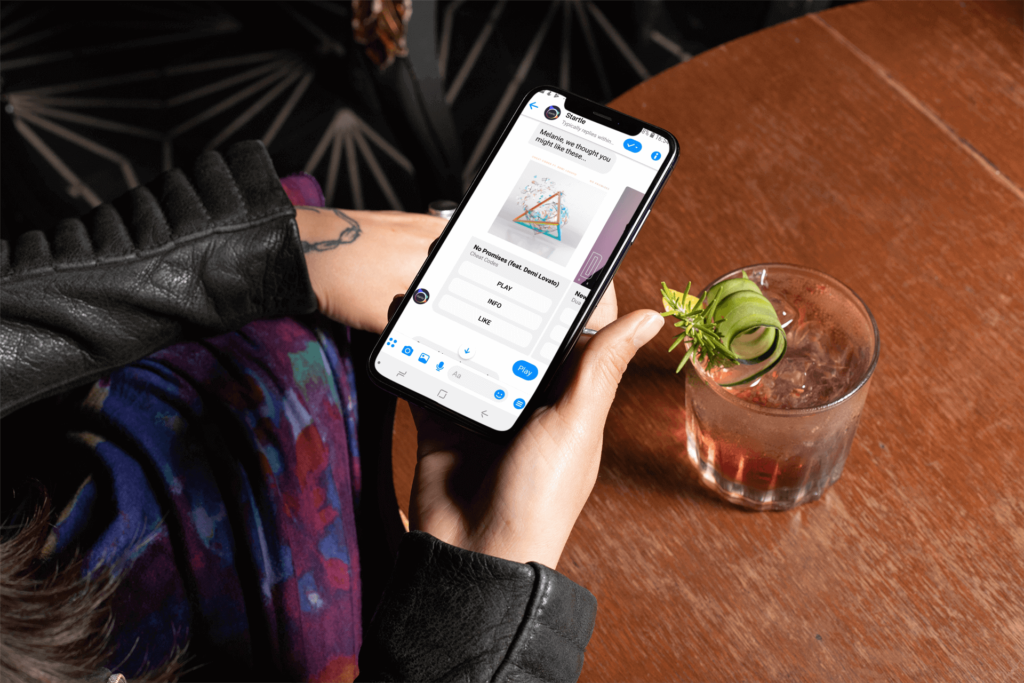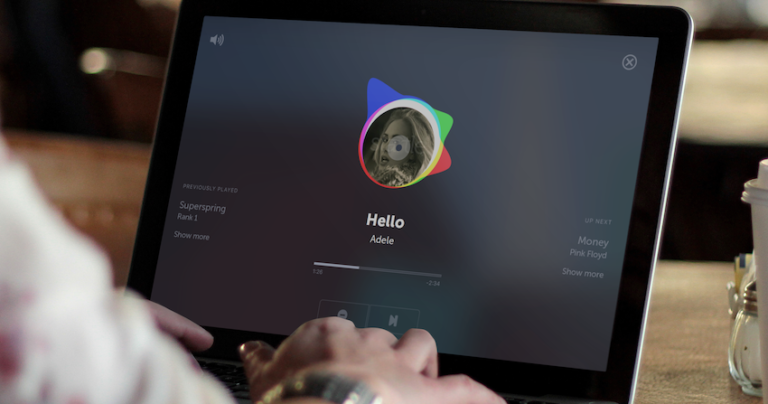Pleo Hero of the Month: Adam Castleton, Startle


Fresh insights from 2,650 finance decision-makers across Europe
Adam Castleton of Startle was one of Pleo’s earliest customers in the UK, which is pretty cool already. But when you add in what his company does and his own back story, you realise exactly why he’s this month’s Pleo Hero.
Tell us about Startle.
We’re a technology company that supplies background music and other engaging experiences to retail and hospitality, to help keep them in sync with their customers.
So our system deploys music playlists to a store or a bar, for example, at high quality and updated by itself so it doesn’t ever go out of date.
Sound, light and vision can then work together really powerfully to change customer behaviour.
We know, for example, that if you dim your lights and increase the volume in any bar in the evening, you can increase your bar sales.
Have there been lessons you’ve learned about what music does to people?
You can’t say this artist earns you more, or this artist earns you less. It’s more about the tone of the song, whether there’s lyrics or not, the tempo, the sound of the instruments that are used.

“Sound, light and vision can work together… to change customer behaviour” © Startle
The music needs to be appropriate for wherever the person is visiting.
How do you want that customer to feel when they come in through your door? We’ll help them feel like that.
Remote work is something that you put a focus on at Startle. Why?
Quality of life is really important for me, spending time with family is precious.
When we were first setting up the business, my wife and I lost our first son Finn when he was six months old. We spent six months in hospital at the same time as the business had just raised investment.
That put things in perspective for our work culture.
It meant asking myself: Where would I want to work and can I create that environment for our team? It’s not just about paying people’s mortgages, it’s about creating a place where they’re happy to be.
How did you discover Pleo?
We don’t actually have tons of expenses (we’re pretty lean) but I’m interested in tech. So I saw a Facebook ad for Pleo and thought: that’s interesting. I like a new toy.
Certainly as you scale, expenses become an increasing problem. What we didn’t want to do was throw more man-hours at a problem that can be automated.
I ordered a trial for team leaders, we did a few transactions and then decided it was right for everyone in the company.
Can you remember a Pleo a-ha moment that an employee had?
Well in our business, “Pleo something” has become a verb, like “Hoover” or “Sellotape” – where the brand name has become the thing.
“Shall I Pleo that?”
“Just Pleo it.”
“Your Pleo or mine?”
What are some unique challenges that Startle faces when it comes to spending?
I think the fact that we are remote and that everyone has the ability to spend what they think is reasonable to spend. The challenge is to find the right tools for that.

Startle works with brands to figure out the best music match for their customers © Startle
Pleo is part of our culture now.
We’re giving [employees] this responsibility on spending… we’re giving them freedom to work where they want. We trust them to not abuse that freedom and responsibility, because it affects everybody if they do.
What has Pleo meant for how you do your job as CEO?
Well, first, I don’t wait until the end of my month for my own expenses, or the end of the quarter or even worse!
It’s hard to do big tasks, you can’t just fit them in.
You have to schedule them and that means often you leave it. And if you leave it, it the problem just gets bigger.
Secondly, for the team’s expenses, Pleo means it’s not something that ever gets to my to-do list. Because it’s just… happening. I can dip in to check responsible spending whenever I want – which is not that often. There are bigger things to worry about.
Has Pleo changed the way your company works?
The primary thing Pleo’s achieved is the contribution to the culture that we’re trying to create.
The second thing is that it works as an efficiency tool for accounts – but that’s actually kind of a secondary benefit for us.
What’s next for Startle?
Growing our footprint in the UK and US is our focus, and we continue to invest in our platform.
But we’re scaling now, so we’re going to revisit the stuff that we wish we’d done in the early days.
We’re a leader with our product and our tech but we need to make sure we’re exceptional, as the industry and technology continues to progress.
“The primary thing Pleo’s achieved? The contribution to the culture we’re trying to create.”
On the spot…Any expense horror stories?
At a previous job, I was in the US on a work trip with a colleague from the UK.
We were hosting a meal, we knew it was going to be expensive. There were three or four of us and it was a two grand bill, something like that.
The guy I was with gave a 10% tip, $200, thinking that’s got to be generous, right?
But in America, no!
So we had this really awkward manager come over, asking “was anything wrong with your meal?”
We were there with an American and as we shuffled out, he was so embarrassed too.
What’s been the coolest use of Pleo at Startle?
Testing. Our developers can test card payments immediately on our own platform, using their Pleo cards. Doing that with an actual bank takes three days.
And it lets us nail smaller things too, like the way the payment is shown onscreen. Because that’s customer experience too.
What excites you about the future of work?
Well, back to remote working, I would like to do a stint abroad.
And when the time is right, that can happen because we’ve built a virtual business that I can run from anywhere.
